Question And Answer
Publications
Articles, publications, books, tools and multimedia features from the U.S. Institute of Peace provide the latest news, analysis, research findings, practitioner guides and reports, all related to the conflict zones and issues that are at the center of the Institute’s work to prevent and reduce violent conflict.
Haiti's Economic Challenge
Haiti's new government faces an enormous economic challenge. Since a brief spike in the 1970's, Haiti's economy has experienced a steady decline as a result of rapacious government policies and, possibly well intentioned, but destructive international sanctions.
Emergent Insecurity in Eastern Sudan
A USIPeace Briefing recapping a meeting of the Institute's Sudan Peace Forum on the Beja people and the recent escalation of violence in Eastern Sudan.
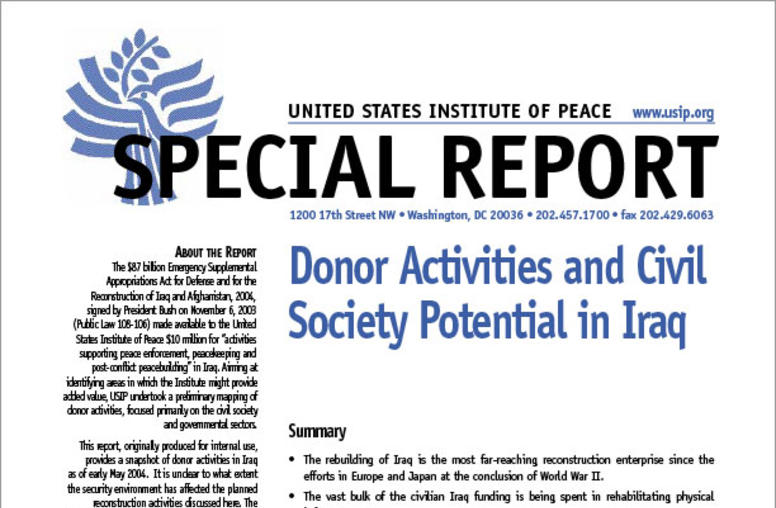
Donor Activities and Civil Society Potential in Iraq
The $87 billion Emergency Supplemental Appropriations Act for Defense and for the Reconstruction of Iraq and Afghanistan, 2004, signed by President Bush on November 6, 2003 (Public Law 108-106) made available to the United States Institute of Peace $10 million for “activities supporting peace enforcement, peacekeeping and post-conflict peacebuilding” in Iraq. Aiming at identifying areas in which the Institute might provide added value, the Institute undertook a preliminary mapping of donor ac...
The Palestinian Reform Agenda
The Oslo Accords reached by the Palestine Liberation Organization (PLO) and Israel in 1993-95 ushered into existence the Palestinian Authority and inspired efforts to build autonomous structures for Palestinian self-rule. Since the earliest days of the Palestinian Authority, a varied group of Palestinians has sought to lay the practical foundation for Palestinian statehood through the construction of strong institutions with clear (and generally liberal) legal bases.
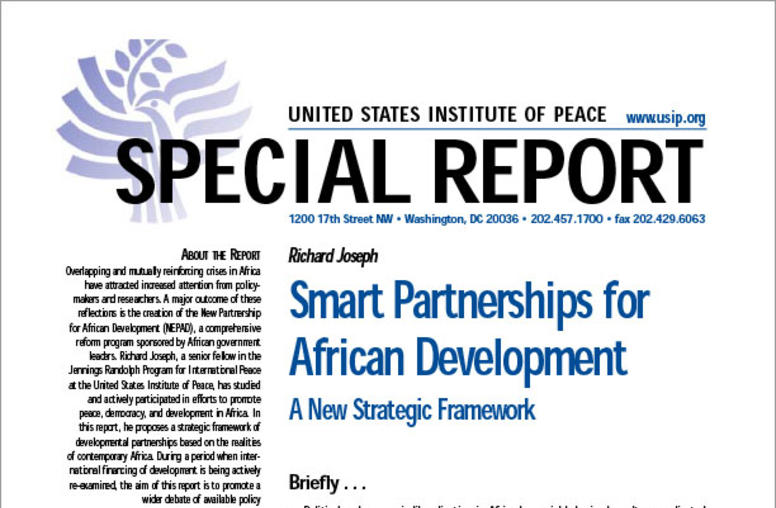
Smart Partnerships for African Development: A New Strategic Framework
Summary Political and economic liberalization in Africa have yielded mixed results, complicated by persistent armed conflicts. The New Partnership for African Development (NEPAD) is at the forefront of efforts to promote enhanced investments in poorer countries that undertake political, legal, and economic reforms. Although good governance has been high on the agenda of African countries since the 1980s, state erosion, corruption, and institutional weakness characterize the public s...
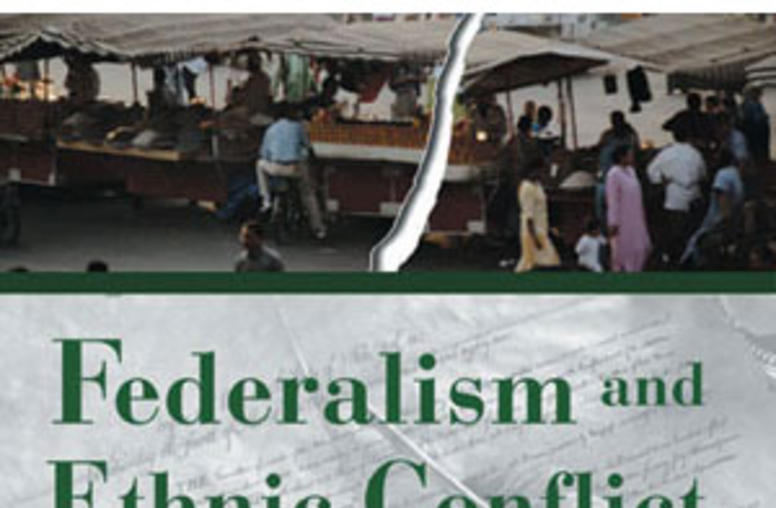
Federalism and Ethnic Conflict in Nigeria
In this compelling new work, Suberu examines the profound political contradictions that make up Nigeria, a nation whose leaders have constantly tinkered with a colonial federal legacy that sought to balance the country’s three major ethnic groups. He explores the evolution of Nigerian federalism through its various constitutional experiments and administrative redesigns, including those in the periods of military rule.
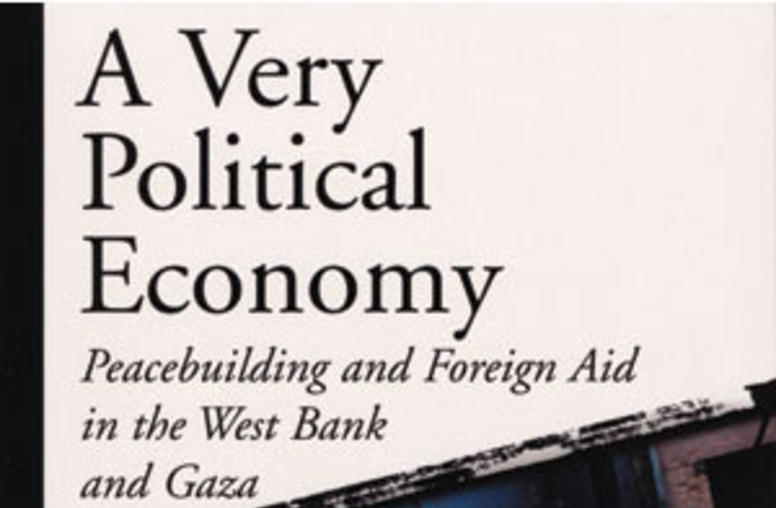
A Very Political Economy
A Very Political Economy spares no political sensitivities in its dissection of the aid process, but also argues persuasively that without international assistance there would have been no Palestinian Authority left to negotiate with, and no peace process to revive.
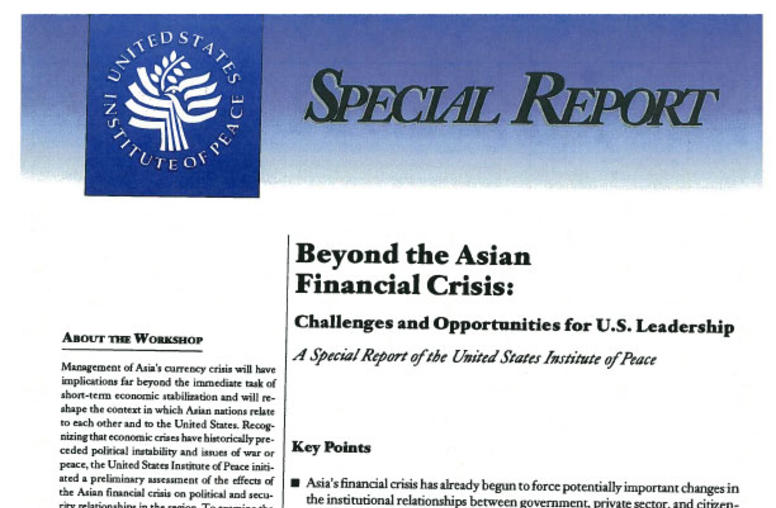
Beyond The Asian Financial Crisis: Challenges and Opportunities for U.S. Leadership
Following two decades of rapid growth, social change, and industrialization, the countries of the East Asian region are experiencing their first regionwide economic crisis. The immediate economic causes of Asia's financial crisis--especially unsustainable short-term foreign debt incurred by the private sector and exposed by the sudden devaluation of overvalued local currencies--have been identified. The challenges for U.S. leadership in response to the region's current financial crisis are to...
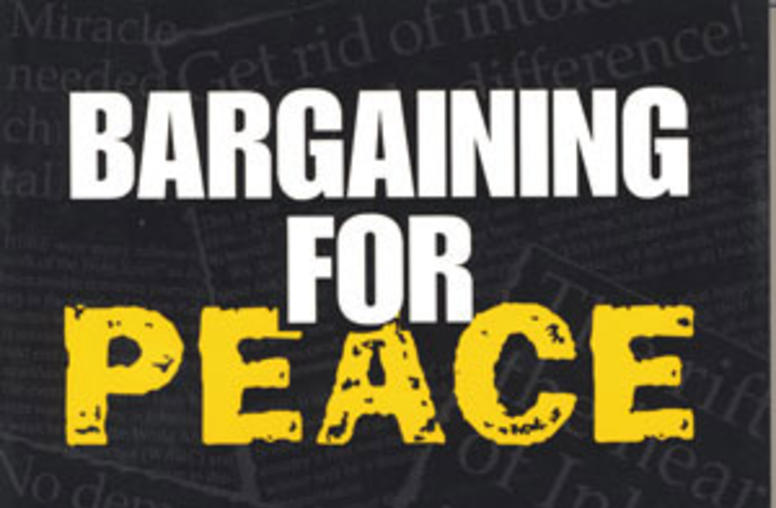
Bargaining for Peace
South Africa and the National Peace Accord
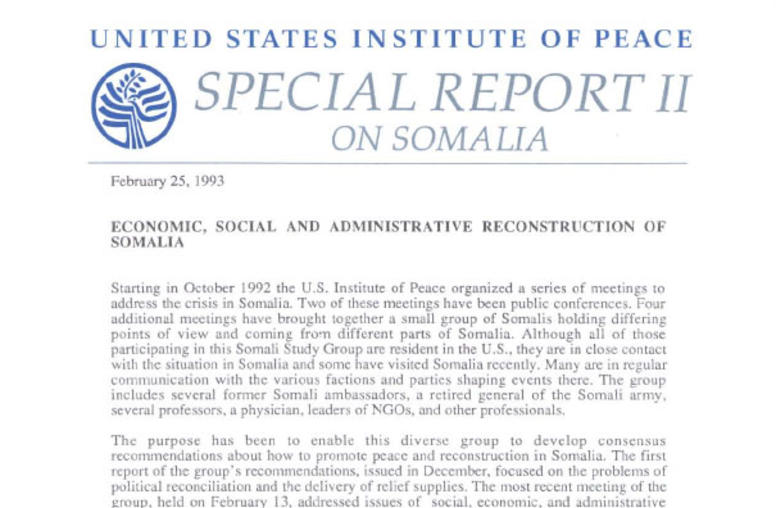
Economic, Social and Administrative Reconstruction of Somalia
Starting in October 1992 the U.S. Institute of Peace orgnized a series of meetings to address the crisis in Somalia. The meetings included several former Somali ambassadors, a retired general of the Somali army, several professors, a physician, leaders of NGOs, and other professionals.